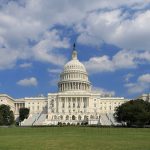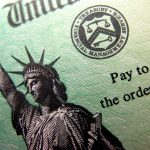BBB Scam Alert: Scammers target immigrants hoping for a U.S. visa
Milwaukee, Wis. – This spring, the United States restricted visa applications due to COVID-19. Unfortunately, the situation has created plenty of opportunity for scammers. With many people confused by the changing laws, con artists prey on those who urgently need a visa to continue their studies or work in the U.S. Scammers pose as U.S. government officials and promise visas in exchange for a fee.
How the Scam Works
You visit a website or receive an email that looks like it’s from a U.S. immigration service or agency. It includes pictures of the president, the American flag, the U.S. seal, and other patriotic emblems. As you explore the website, you find other convincing terms, such as “official green card lottery” or “government visa applications,” which seems to assure that you’re going through the proper channels. The “green card lottery,” officially known as the Diversity Visa Program, is a U.S. government program that grants 50,000 visas a year to individuals from selected countries.
What’s worse, these scam services can open you up to identity theft. You’ll be asked to provide detailed personal information, such as your name, birth date, birth country, address, marital status, and phone number. You’ll also need to share your work history and passport photos. Getting this information and your money is the end goal of many scammers. Scammers have no intention of ever helping you apply for a visa.
How to Avoid Visa Scams
- Only apply for a visa through official websites. The only official place to get information about the DV program and immigration visas is through U.S. government websites that end in “.gov,” such as state.gov and dvlottery.state.gov. You should apply directly for the Diversity Visa Program through the official U.S. Department of State website during the specified and limited registration period.
- Be wary of people who assist with immigration visa applications. The U.S. Department of State does not recommend you get outside assistance and makes it clear that outside help will NOT improve your chances of being selected or approved. If you must get assistance, be sure you only work with reputable persons and double-check that all the information they put on your application is 100% accurate.
- Check for lookalikes. A website may appear to be official by using patriotic images, but proceed with caution if the website does not end with “.gov.” The same goes for emails. All official visa-related correspondence will come from a “.gov” email address.
- Get to know scammers’ tactics. The Department of State has posted a warning about fraud related to the Diversity Visa Program. Read up on scammers’ tricks to protect yourself from fraudulent offers.
For More Information
Stay alert to potential scams by visiting BBB.org/AvoidScams. Read more about impostor scams in this BBB study of government impostors.
If you’ve been the victim of a visa scam, report the incident to BBB.org/ScamTracker. Your report can help alert others to similar scams.
For more information or further inquiries, contact the Wisconsin BBB at www.bbb.org/wisconsin, 414-847-6000 or 1-800-273-1002. Consumers also can find more information about how to protect themselves from scams by following the Wisconsin BBB on Facebook, Twitter, Instagram and YouTube.
ABOUT BBB: For more than 100 years, the Better Business Bureau has been helping people find businesses, brands and charities they can trust. In 2019, people turned to BBB more than 183 million times for BBB Business Profiles on more than 5.8 million businesses and Charity Reports on 11,000 charities, all available for free at bbb.org. There are local, independent BBBs across the United States, Canada and Mexico, including BBB Serving Wisconsin which was founded in 1939 and serves the state of Wisconsin.
NOTE: This press release was submitted to Urban Milwaukee and was not written by an Urban Milwaukee writer. While it is believed to be reliable, Urban Milwaukee does not guarantee its accuracy or completeness.






















